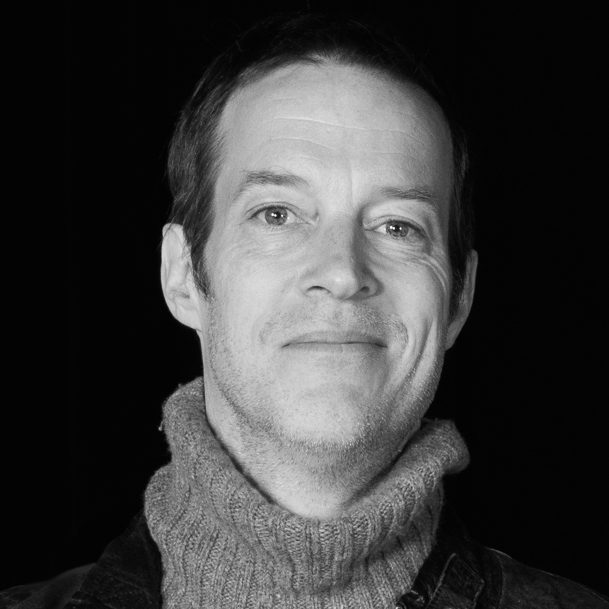Escape to Manitoba: Addiction, Mental Health, and Healing
In 2006, I was at the height of my career as Artistic Producer at Buddies in Bad Times Theatre. David Oiye and I spent our days in the basement office at Buddies dreaming up theatrical ideas and finding the money to make them happen. I loved my job and was proud of what had been accomplished at the theatre since I started working there in 1999. There was the constant hum of stress, of course, but that was part of the job description. As an overachiever, I was up for the challenge.
One morning I woke up and noticed plaque on my tongue. It felt like thick, heavy tar. I’d brush obsessively, but it wouldn’t go away. I thought about it on my way to work, sitting at my desk, in meetings. Other new symptoms followed and my list of worries grew.
I researched my symptoms online (never a good idea) and my mind pinballed through a host of illnesses and circled non-stop around health-related concerns. As days turned to months, my fears compounded until my brain was on a rapidly-cycling loop of specific worries constantly at the forefront of my internal dialogue—my own ‘Greatest Hits’.
So, why didn’t I go to the doctor? The intensity of my newfound anxieties became matched by what I can only describe as inertia, or paralysis. Simply put, I didn’t seek help. This was my first encounter with ‘crazy’. Anxiety gave way to depression, and I began sleeping through the weekends. The ability to multi-task, which had been a true strength of mine, felt near impossible.
The first two phases were anxiety and depression and, in addition to sleeping non-work time away, my other coping advice was of the self-medicating variety—first with booze and pot, then with drugs of the harder variety. I didn’t discriminate, any drug would do. But it was cocaine that brought me to my knees. Working at the theatre, it took no more than a few minutes to pick up in the immediate vicinity. I visited the street corners around the theatre and was able to shed the stress that was my daily companion. My worries went away and I felt free for a few wonderful hours.
My descent into full-blown addiction was rapid.
Like many addicts I thought, “I can handle this. This will be my last line, my last hit, my last drink.” But my rapid thoughts and underlying panic always sent me running back. Things were getting completely out of control. I spoke to no one about my worries, my fears, my troubles. And no one came to ask if I was okay. At the height of my mental health and addiction morass, I was lauded. I produced one of the most successful seasons at Buddies which was nominated for multiple Dora Awards.
That year I received a call from my mother telling me my grandmother was dying. She lived in rural Manitoba and we had always been very close. The devastating news was my escape route out of Toronto. I informed the board at Buddies that I was leaving immediately to be with my dying grandmother, and would be back in six weeks.
Being with my grandmother in her final weeks offered a safe place to begin dealing with my trauma. She was a pragmatist to her core, “Jimmy eat something, get some rest and go see the damn doctor.”
I started playing the piano again. Music had been so important to me growing up. My grandmother sang with me in between her naps—we reconnected creatively and emotionally. My grandmother wondered if she had done enough with her life and I wondered if I’d done too much. She recognized the isolation I was feeling and, over time, we talked about the dark thoughts that were eating me up inside.
The time with my grandmother was invaluable and marked the start of my healing journey. When I returned to Toronto, I entered a 21 day addictions program at CAMH. While it was helpful, it didn’t prove to be the cure I thought it would be. While other people in the program were getting better and maintaining their sobriety, I suffered regular crashes every few years.
One day, after one of my cycles, I realized the thing that came first was the mental health issues, and that perhaps an addictions program was not the right fit. I entered the Mood and Anxiety Inpatient Unit at CAMH. Therapy helped me understand the root causes of my illness and medication kept me balanced.

Jim LeFrancois’ play – Manitoba Music
It has taken years for me to fully understand the anxiety and depression that underlie my addictions. I wish I could tell you that one day it all magically goes away, a reward for putting in the right amount of therapy and self-care. The reality is that anxiety and depression are something I walk with every day. Sometimes it’s in the background—a distant traveler I can barely see—and sometimes it’s on my shoulders forcing me to the ground. Most days I feel like myself, but I’m careful not to push.
I have, for the time being, left my arts administrator role in favour of daily piano playing, singing and leading the Bruised Years Choir at Workman Arts. This year marks my return to producing, writing, and singing with Manitoba Music—part of the Rendezvous with Madness Festival. It’s terrifying and exhilarating. However, the moment I feel the stress is too much, I put my fingers on the piano keys and imagine I’m singing with my grandmother.









Comments